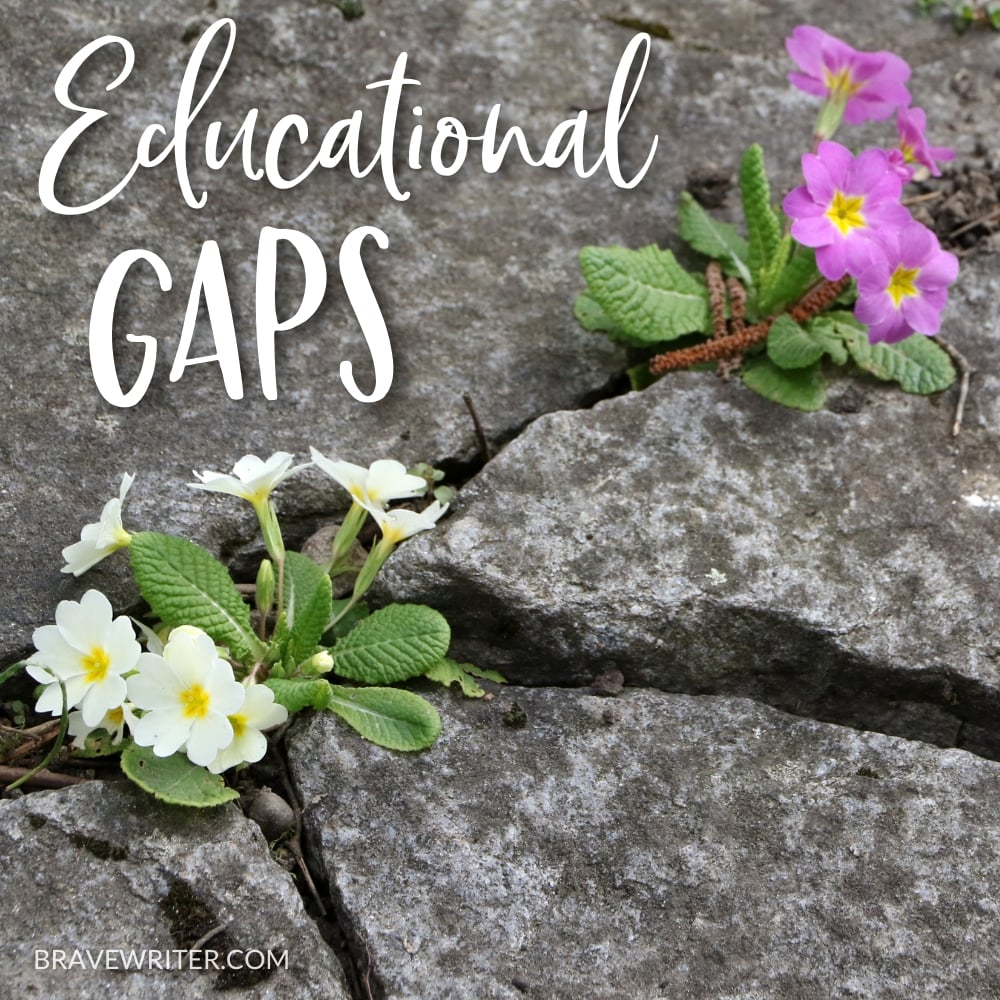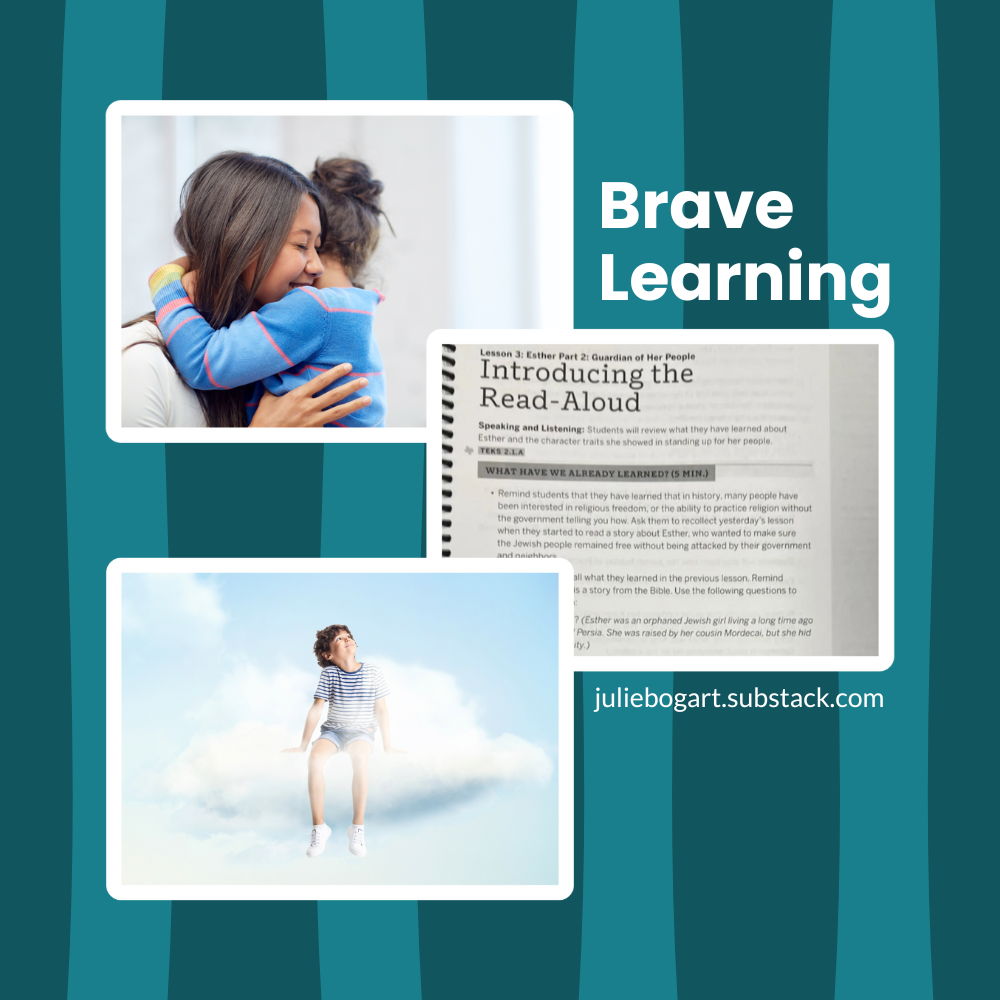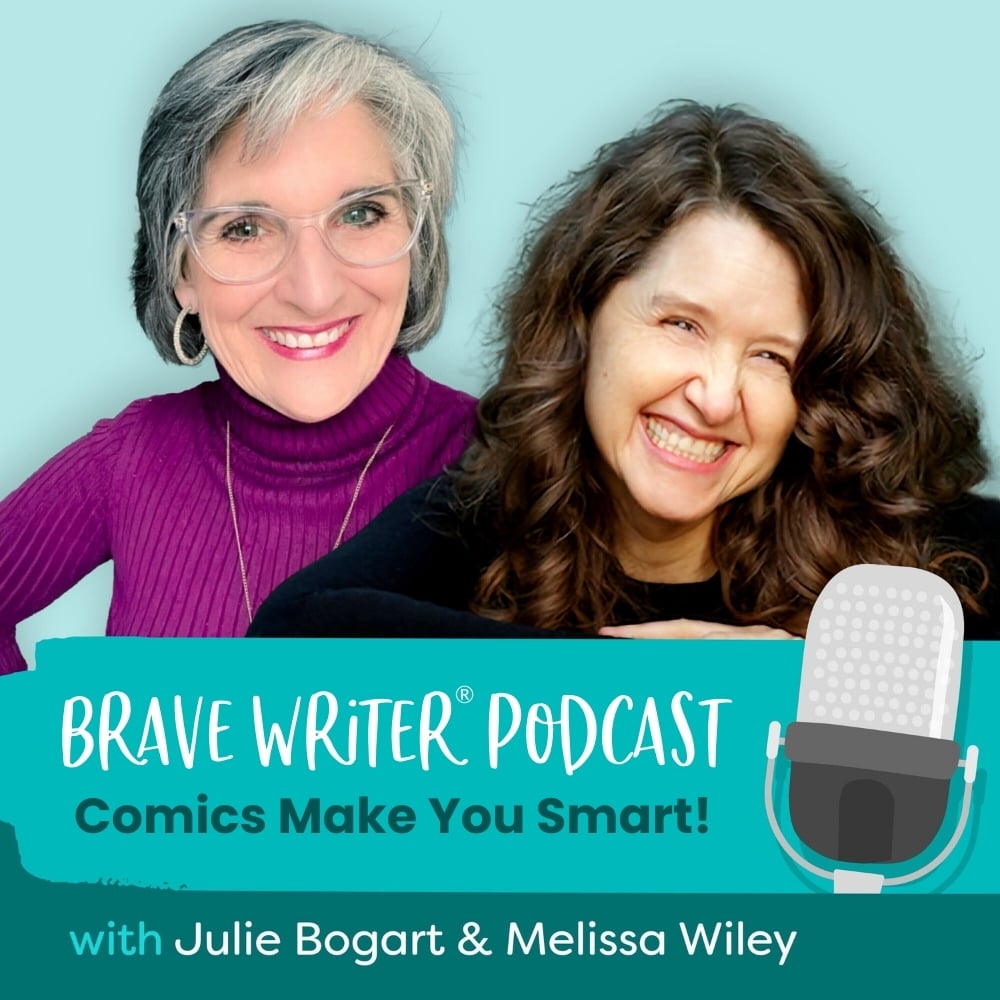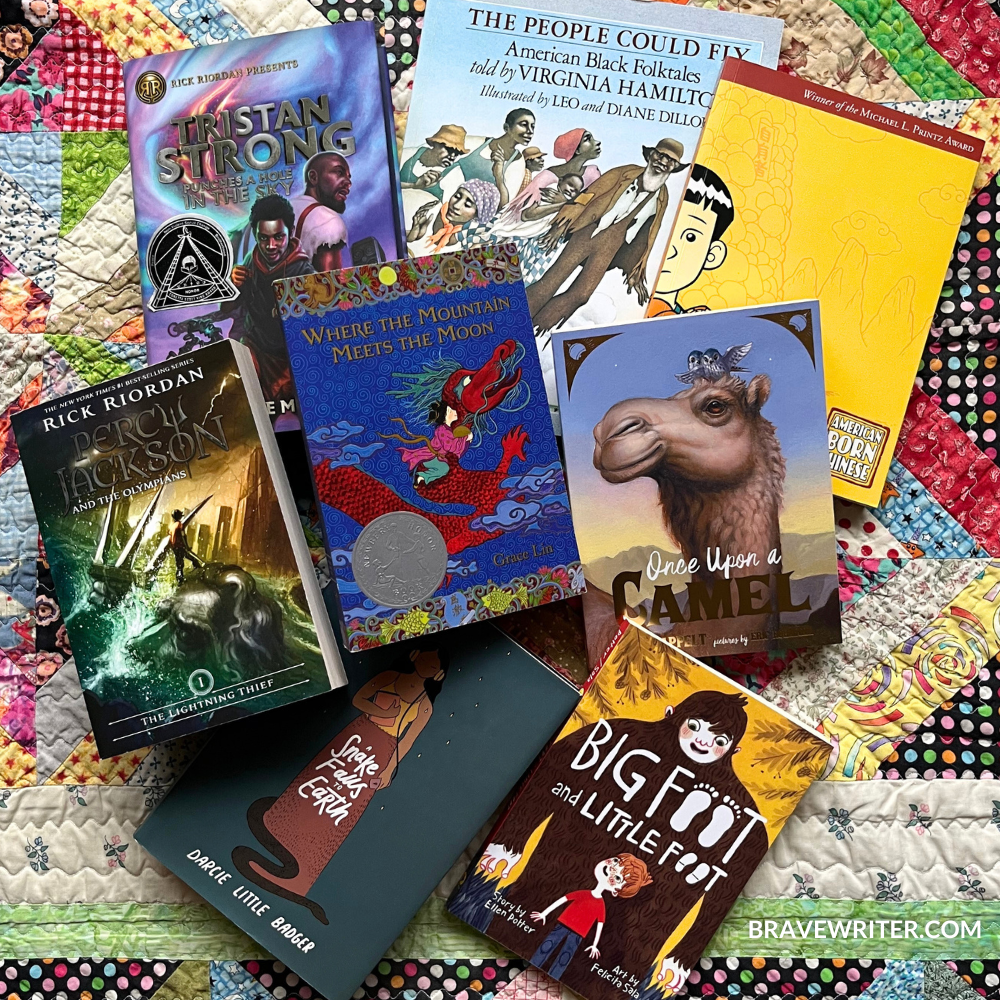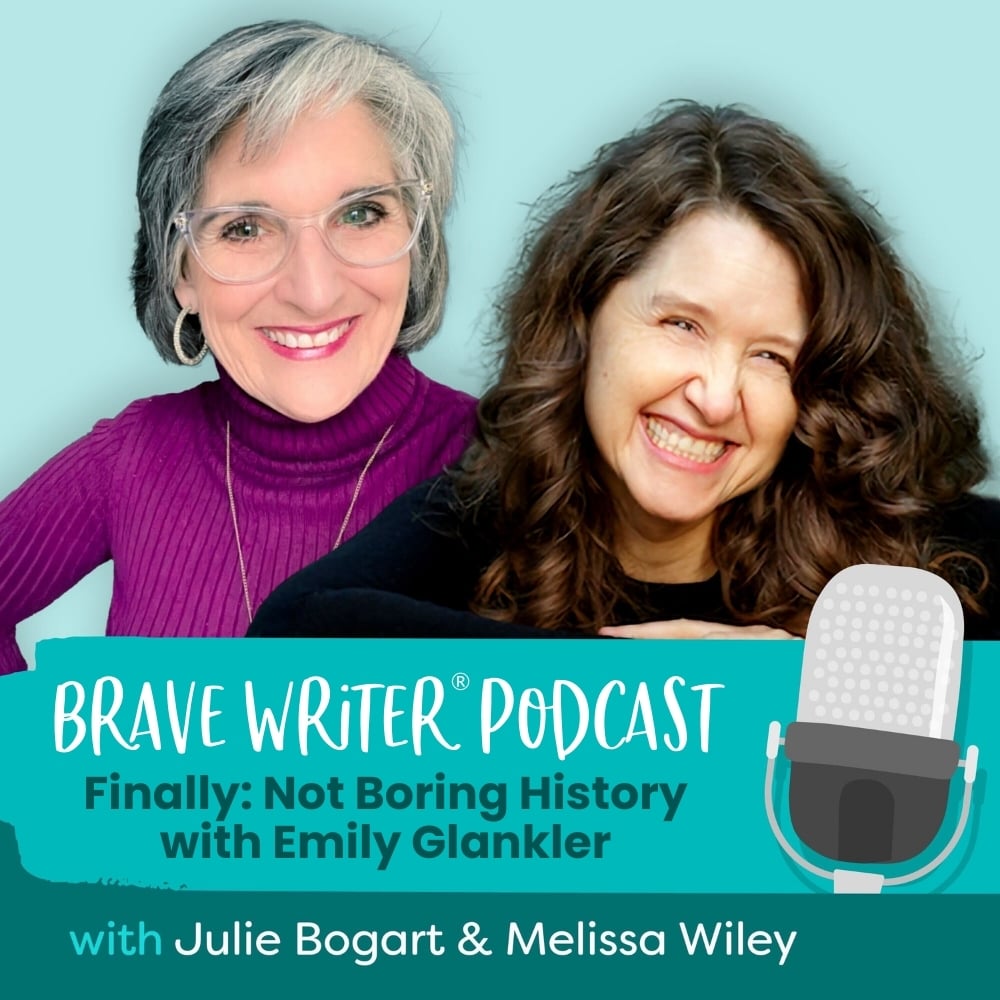
Do you remember history class as a list of dates and names to memorize? What if we told you there’s a better way to approach it—one that sparks curiosity and connection?
In this Brave Writer podcast episode, we chat with historian and educator Emily Glankler about how to make history come alive for both kids and adults. We explore how history is more than just facts—it’s a story that helps us understand the world.
Emily shares tips on:
- critical thinking,
- thematic learning,
- and why questioning the past is essential to making sense of the present.
Join us for a fascinating discussion on how to approach history in a way that’s engaging, meaningful, and fun.
Show Notes
History often gets a bad reputation. Many of us remember our own history classes as dull recitations of dates and events, memorized just long enough to pass a test. But history is so much more than that. It’s the story of people, decisions, struggles, and triumphs that have shaped the world we live in today. The key to making history engaging—both for kids and for ourselves—is to approach it with curiosity and a sense of connection.
History as a Story
One of the most effective ways to teach history is through narrative. A timeline of battles and treaties may not spark excitement, but the personal stories behind those events can bring history to life. Consider using historical fiction, biographies, and documentaries that center on real people’s experiences. These resources help frame history as an unfolding story rather than a collection of isolated facts.
Emily Glankler, a historian and educator, encourages us to think about history beyond just dates and famous figures. She suggests structuring history studies around themes, such as women’s history, technological advancements, or social movements, so we can see the bigger picture of change and continuity over time. This approach allows us to make connections across eras and better understand how the past informs the present.
Curiosity and Critical Thinking
History isn’t just about learning what happened—it’s about asking why it happened. When we encourage kids to ask questions about historical events, we teach them to think critically.
- Why did a society build aqueducts?
- How did an empire rise and fall?
- What motivated people to fight for certain rights?
These questions lead to richer discussions and a deeper understanding of the forces that shape our world.
It’s also crucial to recognize that history is never just “one version” of events. The stories we tell are shaped by the perspectives we include. A well-rounded history education should explore different viewpoints, question biases, and invite discussion. Rather than focusing on debates that pit one side against another, we can encourage conversations that allow for nuance and complexity.
Bringing History Into Everyday Life
History isn’t confined to textbooks. It’s in the places we visit, the books we read, and even the objects around us. Traveling to historic sites, visiting museums, or simply exploring local history can make the past feel tangible. As parents, engaging with history ourselves—through reading, traveling, or exploring our own family stories—sets an example for our kids. When we’re excited about learning, they are too.
The past is always relevant to the present, and studying it should feel dynamic and personal. Whether it’s through examining historical events that shaped modern politics, understanding ancient innovations, or exploring family ancestry, history offers endless opportunities to connect with our world.
Instead of treating history as a subject to get through, let’s make it an adventure—one where we and our kids are active participants in uncovering the stories that have shaped humanity.
Resources
- Emily Glankler is found at: antisocialstudies.org
- Instagram: @antisocstudies
- TikTok: @antisocialstudies
- Check out Julie’s new author website: juliebogartwriter.com!
- Subscribe to Julie’s Substack newsletters: Brave Learning with Julie Bogart and Julie Off Topic
- Try out our Brave Writer Practice Pages
- Find our kids’ graphic novel & nonfiction recommendations in the Brave Writer Book Shop: https://bravewriter.com/book-shop/list/podcast-recommendations
- Learn more about the Brave Writer Literature & Mechanics programs
- Read all Brave Writer class descriptions
- Start a free trial of CTCmath.com to try the math program that’s sure to grab and keep your child’s attention
- Sign up for our Text Message Pod Ring to get podcast updates and more!
- Send us podcast topic ideas by texting us: +1 (833) 947-3684
Connect with Julie
- Instagram: @juliebravewriter
- Threads: @juliebravewriter
- Facebook: facebook.com/bravewriter
Connect with Melissa
- Website: melissawiley.com
- Substack: melissawiley.substack.com
- Instagram: @melissawileybooks
Produced by NOVA



